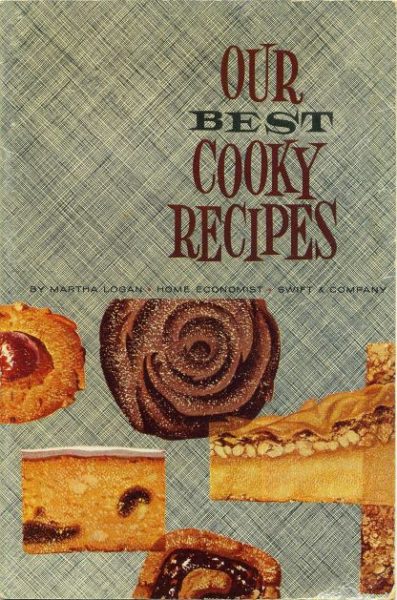
I know I am not the first person to ponder the frequent incidence of the word ‘cooky’ in old cooking pamphlets and recipe books, but no one has yet explored this ‘alternate spelling’ on the internets to my edification. And ‘alternate spelling’ is what is given as a reason for the existence of ‘cooky’ in dictionaries. I thought maybe cooky’s etymological history would explain it, but no. The Online Etymology Dictionary says simply that ‘cookie’ is possibly derived from a 1730 Scottish term meaning “plain bun,” but it’s definition in 1808 as a “small, flat, sweet cake” is more similar to the Dutch koekje “little cake,” a diminutive of koek “cake.”
The etymological histories didn’t even get into how British English calls the same types of confection ‘biscuits.’ Michele Debczak at Mental Floss (2012) points out that the two ‘sweet baked goods’ actually refer to two different types of confection, but does not explore why, even if they have been categorically described as either slower cooking soft thick dough (cookie) or a thin crisp baking stiff dough (biscuit), the terms are more often used based on country and not on type of bake.
I was foolishly hoping to find some online search or service that could comb through historical resources for word popularity similar to how Google Trends combs through the internet search history, but alas. The closest I got was the Google books ngram viewer, which can report on the frequency of words within the Google Books catalog (Wikipedia).
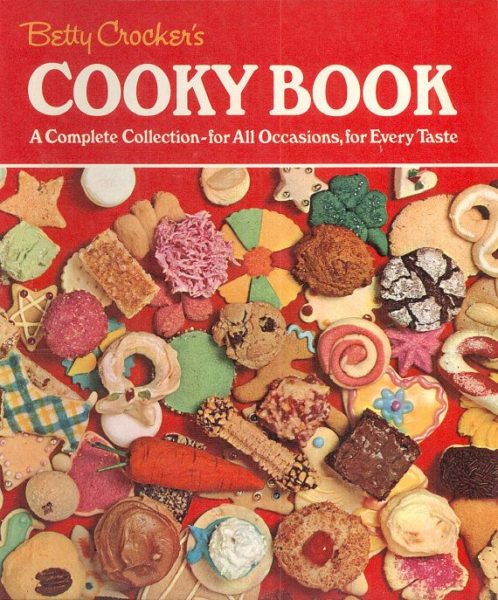
The graph that resulted confirmed what I was seeing in my recipe books and cooking pamphlets, that ‘cooky’ was used most during the mid 20th century, but it didn’t feel like the whole story. After all, Google Books doesn’t really have a lot of recipe books, and recipes were also popularly shared in newspapers.
Chronicling America at the Library of Congress returned massive results when searching for ‘cooky’ that I thought were bogus at first. It seemed to me that the results interchangeably included both ‘cookie’ and ‘cooky.’ This can happen sometimes when search engines are smart enough to correct for misspellings but also not smart enough to search misspellings when quotes are included.
But then I realized that the results were not because of spelling corrections! Both spellings were used in most of the results! From the earliest result I could find in my (definitely not exhaustive) search: 1826, to a mid-century result in 1948, ‘cooky’ was being used as the singular, while ‘cookies’ was the plural.
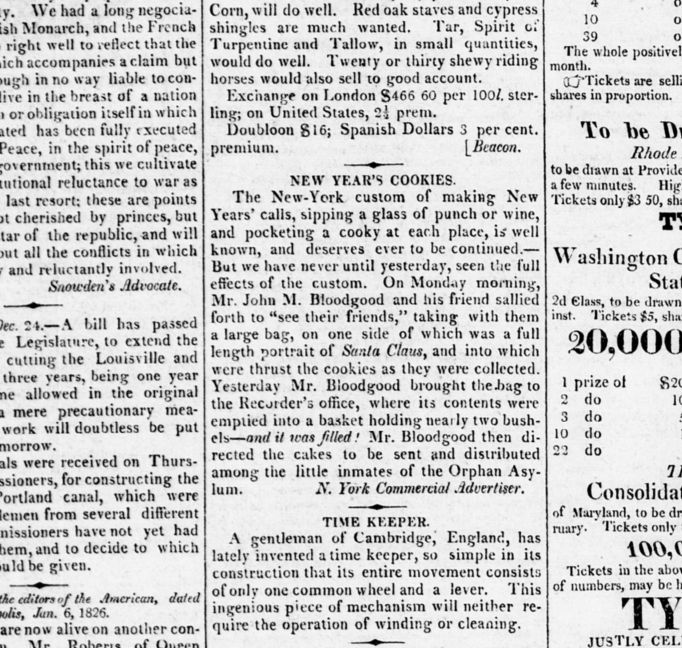
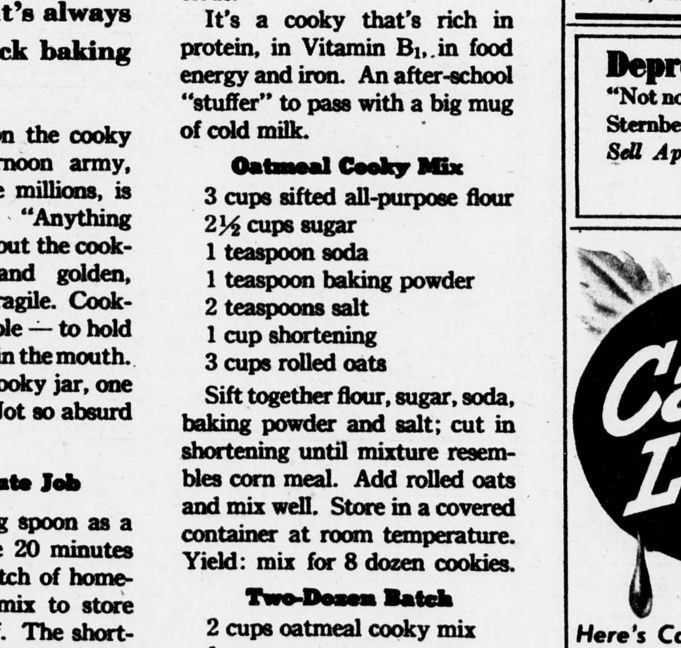
The 1826 mention that I found, above, also calls the collected confections ‘cakes,’ bringing to mind the Dutch koekje. The earliest I could find ‘cookie’ used as the singular was in an 1895 poem about a ‘Cookie Man.’
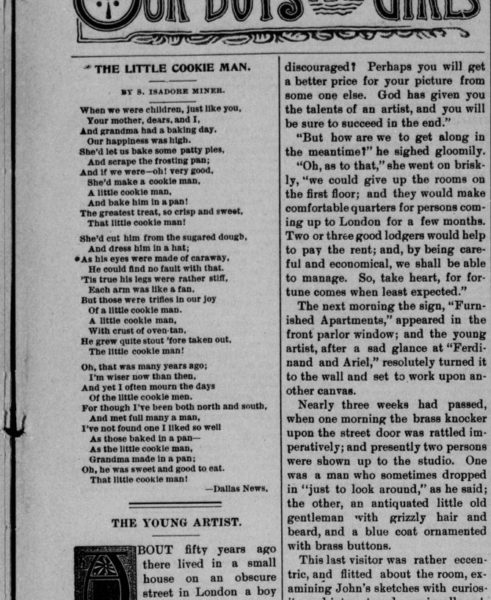
The next time I found ‘cookie’ in the singular sense was also a name. I am not quite sure when ‘cookie’ became an alternate for ‘cooky’ but it seems safe to say that instead of simply an alternate spelling, ‘cooky’ is actually the old use singular of ‘cookies.’

1 Comment
Fascinating!!